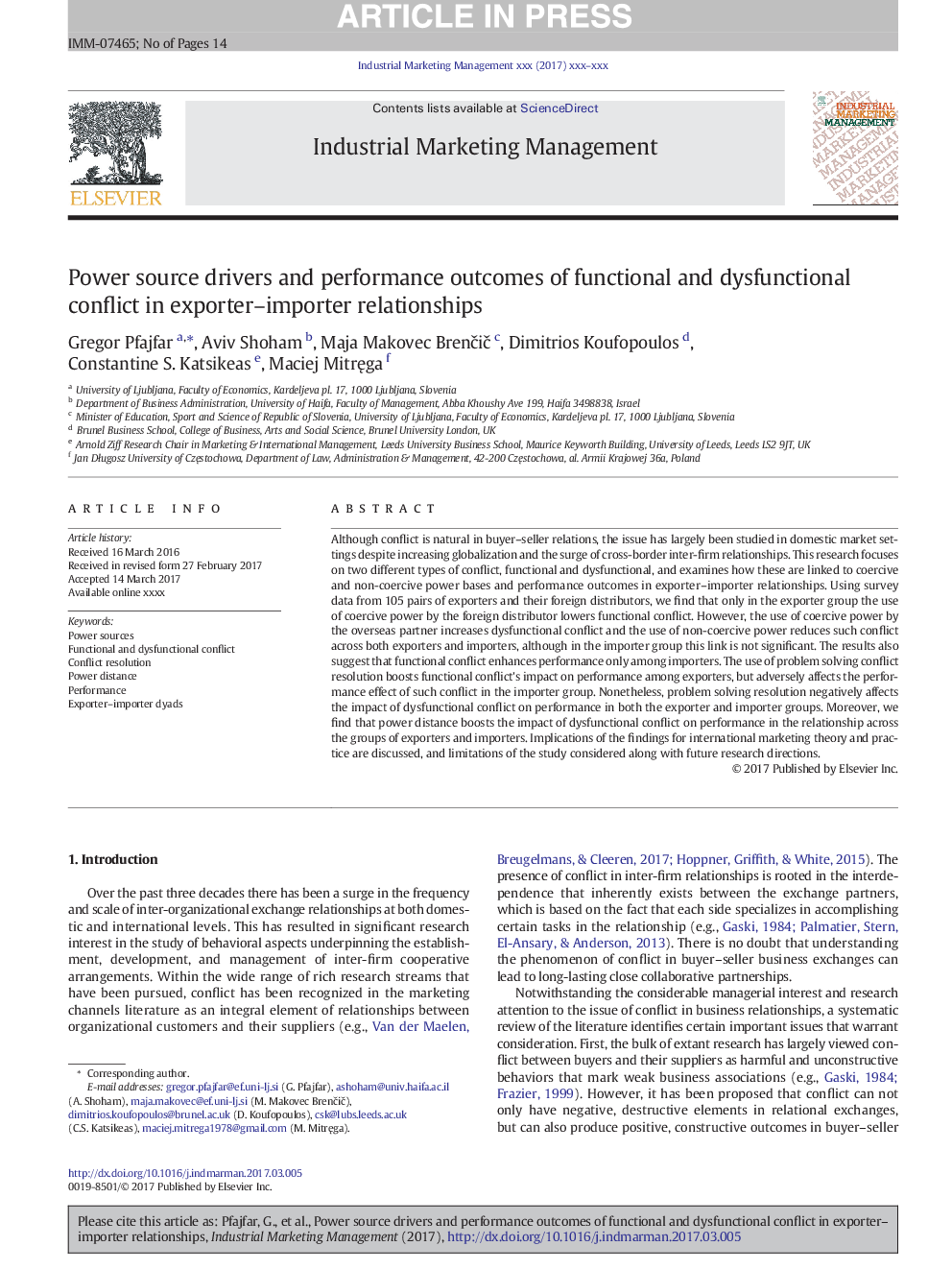ترجمه فارسی عنوان مقاله
رانندگان منبع قدرت و نتایج عملکرد تعارض عملکردی و ناکارآمد در روابط تجار صادر کننده
عنوان انگلیسی
Power source drivers and performance outcomes of functional and dysfunctional conflict in exporterimporter relationships
| کد مقاله | سال انتشار | تعداد صفحات مقاله انگلیسی |
|---|---|---|
| 103304 | 2017 | 14 صفحه PDF |
منبع

Publisher : Elsevier - Science Direct (الزویر - ساینس دایرکت)
Journal : Industrial Marketing Management, Available online 22 May 2017
ترجمه کلمات کلیدی
منابع انرژی، اختلال عملکردی و ناکارآمد، حل اختلاف، فاصله قدرت، کارایی، وارد کننده صادرکنندگان،
کلمات کلیدی انگلیسی
Power sources; Functional and dysfunctional conflict; Conflict resolution; Power distance; Performance; Exporterâimporter dyads;

